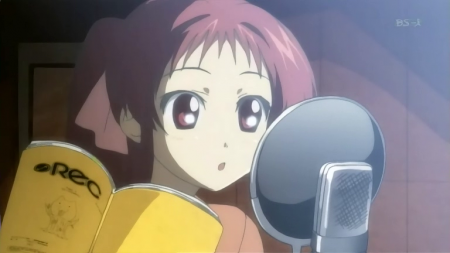Ask John: Why Do Japanese Studios Want to Approve English Dubs Lately?

Question:
Viz’s new dub of Sailor Moon is approved by Naoko Takeuchi herself. This is not the first time a creator, publisher or studio wants certain voice cast to be approved. In 2005 when Viz brought over Naruto studio Pierrot wanted to be very specific for the English cast. Why is that?
Answer:
Put simply, these days, particularly with heavyweight franchises, there’s little reason for Japanese master licensors to not be directly involved in international releases. Franchises like Naruto and Sailor Moon are massively profitable, top-shelf titles, so naturally their Japanese master licensors and creators have a personal vested interest in ensuring that these anime are treated well in international release. For example, to ensure that its films receive praiseworthy English dubs, Studio Ghibli these days personally selects the producers that it trusts to take charge of producing English language translations of its films. Realistically, native Japanese speakers may not actually be the most ideal experts to judge the nuance and quality of English language dubs. We’ve seen past instances like the Armitage III: Polymatrix motion picture, director Yoshiaki Kawajiri’s personal supervision of the English language audio for the 2000 Vampire Hunter D movie, and director Kunihiko Ikuhara’s supervision of the English dub of the Shoujo Kakumei Utena motion picture in which the English dubs were flawed in some way or another that typically only a native English speaker would notice. But the mere act of a Japanese studio or an original creator giving personal approval to a particular localization lends credibility to the localization. No matter how good or bad a forthcoming new English dub of Sailor Moon happens to be, its producers can always say, “Sailor Moon creator Naoko Takeuchi personally approved it.” Even if Japanese producers and studios aren’t ideally equipped to accurately assess English dubs, the mere effort of supervising the dubbing process gives everyone, including consumers, a sense that the original creators were involved in the localization, and, therefore, by implication, the sense that localization has more authenticity and credibility than it would otherwise have, regardless of whether the dub is actually good or not. Approving the dub, even if the Japanese creator or producer may not be the best judge of a foreign language, gives the Japanese master licensor a greater sense of control and input over the international distribution of a highly valued franchise. That impression of precise supervision allays fears on the part of the Japanese owners and gives foreign audiences more reason to accept and support a particular dub localization. In other words, an English language dub personally approved by a Japanese creator is absolutely no guarantee of quality but is a fantastic marketing gimmick.

